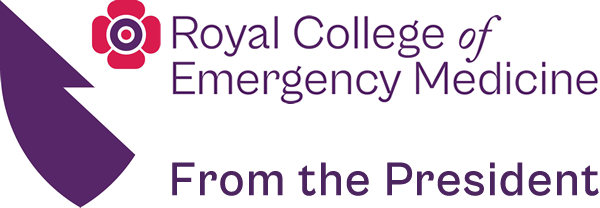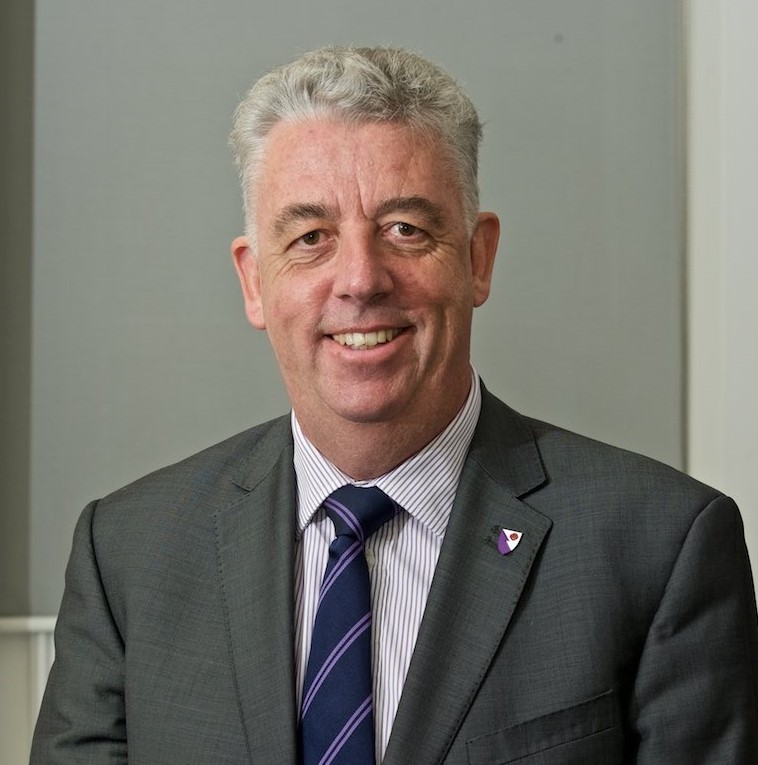I hope this epistle finds you well. As I write on the Monday afternoon after the busiest weekend my department has ever had, I confess to being a little war-torn. An almost 20% rise in attendances with an even greater rise in the proportion conveyed by ambulance is an exhausting experience for my ED team, and I know that these circumstances are being replicated up and down the length of
the UK and Ireland. Providence would suggest that this acts as a powerful counter-argument to those who continue to claim that ED attendances are little changed over the last few years.
Fortunately my resolve, enthusiasm and even knowledge has been fortified and increased by the recent Annual Scientific Conference, held just down the road in Exeter. This was a fantastic event with over 550 delegates and a wonderful line up of speakers from across the UK and many from overseas. The local organising committee led by Adam Reuben and Andy Applebaum are to be congratulated on delivering an event that showcased such excellent work. I know Manchester
2015 will be keen to match this success.
Last week I attended a meeting of the CEM Scotland National Board. Jason Long has stepped down from the chairman role after 3 years in which he and the board have made great strides in advancing the specialty in Scotland. His successor Martin McKechnie will no doubt continue to ensure EM is powerfully engaged with civil servants, politicians and the public in Scotland.
It was interesting to be in Scotland on the eve of the referendum and we have good reason to be glad that the original charter of the College constructed National Boards to ensure proper representation amongst the devolved nations of the UK. Over the past 12 months, as resources have allowed, we have worked to ensure much greater support for these boards via the policy team which has grown by 300% (from one to three people). The credibility of the College is heavily dependent upon its ability to knowledgeably represent national EM issues and this can only be done by national boards and chairs.
Today I am travelling to Manchester to attend our ‘Fringe Event’ at the Labour Party Conference in which we, together with the RCP and Foundation Trust Network, are promoting our report ‘Acute and Emergency Care – prescribing the remedy’ Importantly this highlights a broad consensus arguing for funding reforms for acute care and contract reforms for those working in high frequency, high intensity out of hours work. We will also be attending the conferences of the
Coalition Government parties to make the same points.
Much is also happening in relation to other policy areas especially the problems associated with alcohol. I wrote a piece in the BMJ criticising the extended opening hours introduced during the World Cup, we have been campaigning with many others for the introduction of a minimum unit price and we are also actively highlighting the problems associated with people drinking large volumes of alcohol at home before setting out for an evening in town – the so called ‘pre-loading’ phenomenon.
More broadly we have established an alliance with the Royal Society for the Prevention of Accidents. Having successfully championed safety on the roads and at work we now rather paradoxically find that home is the most dangerous place to be! Indeed there are 4000 deaths each year from accidents in the home. Perhaps I should remind myself of this the next time I find myself at work or travelling and longing for home!
Finally I should like to conclude by reference to the FASSGEM conference being held this month near Hull. The specialty doctor is a a key, and all to scarce resource in the emergency departments of the UK. I am particularly keen to ensure they are accorded due regard, fair remuneration and sustainable rotas. We have come to appreciate this section of ‘Team EM’ rather later than we
should have done and we must do more to encourage, support and develop this cadre of our specialty. Many hospitals have set up ambitious CESR training programmes to properly progress the careers of those specialty doctors who wish to become consultants. Equally important are those who do not wish to do so and the College will aim to provide events and resources specifically matched to their needs and aspirations. Caroline Shaw is stepping down from her post
as FASSGEM president and I would urge all specialty doctors to contact her successor or me with their thoughts and ideas.
By the time you read this we will be marking the third anniversary of the M5 motorway disaster in Somerset. One of the speakers in Exeter, Dr James Hickman gave a powerful account of his role as the BASICS doctor first on scene. The harrowing nature of the environment and challenges he faced were a timely reminder of the need for all of us to look after each other. No one chooses EM
as an easy option – but none of us are invulnerable. The College plans to survey the physical and mental health of its members. The anonymised data will ensure we are better placed to pursue our campaign for an equitable work life balance.
Dr Cliff Mann FCEM FRCP
President
The College of Emergency Medicine
@CEMPresident


